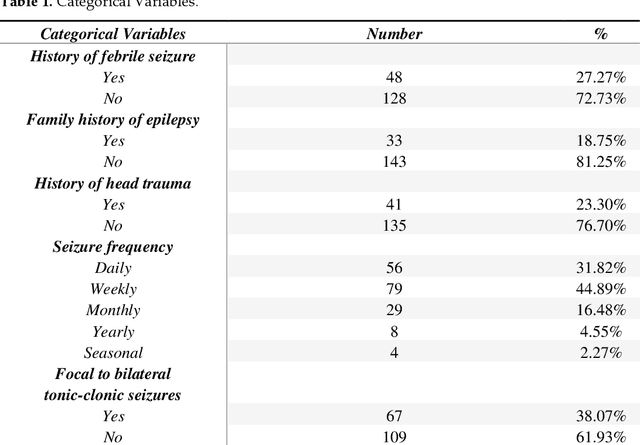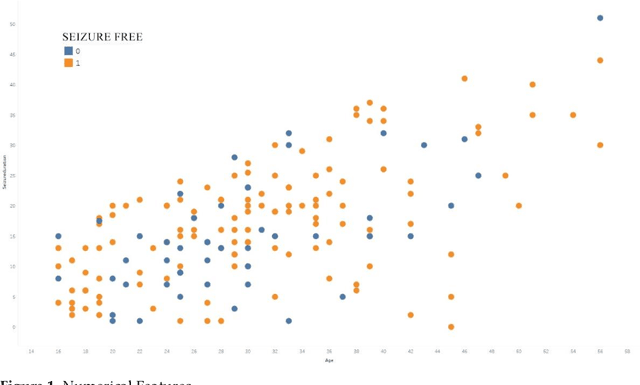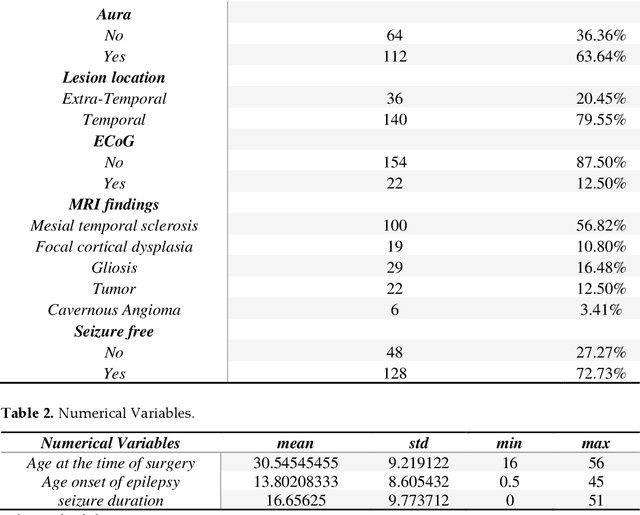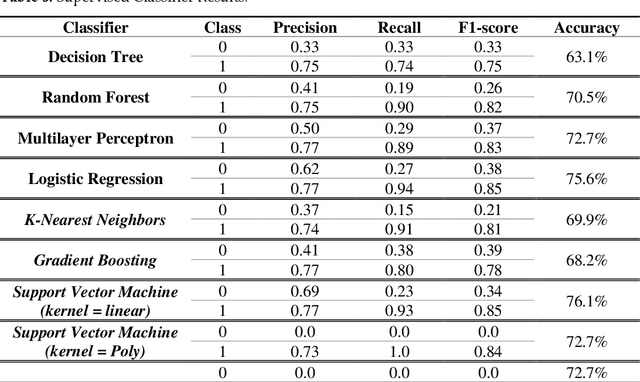Machine Learning Techniques for Predicting the Short-Term Outcome of Resective Surgery in Lesional-Drug Resistance Epilepsy
Paper and Code
Feb 10, 2023



In this study, we developed and tested machine learning models to predict epilepsy surgical outcome using noninvasive clinical and demographic data from patients. Methods: Seven dif-ferent categorization algorithms were used to analyze the data. The techniques are also evaluated using the Leave-One-Out method. For precise evaluation of the results, the parameters accuracy, precision, recall and, F1-score are calculated. Results: Our findings revealed that a machine learning-based presurgical model of patients' clinical features may accurately predict the outcome of epilepsy surgery in patients with drug-resistant lesional epilepsy. The support vector machine (SVM) with the linear kernel yielded 76.1% in terms of accuracy could predict results in 96.7% of temporal lobe epilepsy (TLE) patients and 79.5% of extratemporal lobe epilepsy (ETLE) cases using ten clinical features. Significance: To predict the outcome of epilepsy surgery, this study recommends the use of a machine learning strategy based on supervised classification and se-lection of feature subsets data mining. Progress in the development of machine learning-based prediction models offers optimism for personalised medicine access.
 Add to Chrome
Add to Chrome Add to Firefox
Add to Firefox Add to Edge
Add to Edge